China Expat Chimes In Re: Icebreaker & Kiwi Made
A Kiwi In China Chimes In Re: Icebreaker & China
Opinion & Images By Rick Harriss
RE: Jeremy Moon Defends Icebreaker's move to
China
AND: Barbara Sumner Burstyn: Buy
Kiwi-Made
Dear Jeremy and Barbara,
You are both out of your tree, to quote our late David Lange.
Anyone who wants to find “dirt” and badmouth China can easily do this, and anyone who wants to depict China as a modern clean efficient “shiny” nation can do that too. Neither is true in every respect. China is not one place and not one country, it is a different world. The span between the good, bad and the ugly is enormous in China, much more so than anywhere else in the world.
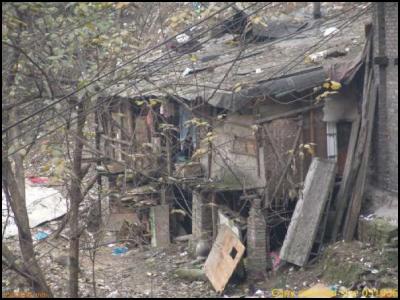
Old China
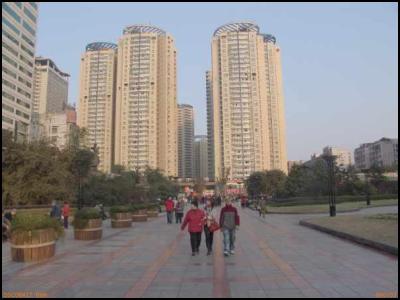
New China
It is clear that China has its own problems, as has New Zealand. Pollution is one and a couple of years ago the China central government tried the soft approach to eliminating pollution, and failed. Now, the gloves are off, even prison sentences are available, but more so are incentives. On an average per capita, pollution is worse in New Zealand than in China.
It is unfortunate that the incompetence in New Zealand about China is so blatant, as are the ignorance of the same, and the lack of knowledge of the “outer worlds”, cultures and places, that is outside New Zealand. Icebreaker is right in investing in China, we could just wish that they would engage some competent people to help them instead of taking a DIY approach.
Anyone should ask the question why Icebreaker is not investing in New Zealand. Could it be that New Zealand is not a good place to invest? If so, it is time New Zealand took a look at itself and made some changes. A local Chinese guy maybe had a point recently when he snapped, “New Zealanders are so damn lazy”. He should know as he had been living in New Zealand for nearly half his life.
Different from New Zealand, employers in China, despite the abundance of people, have to compete for good employees. That is why a good employer, as Jeremy describing, have to provide more than just a job and a salary.
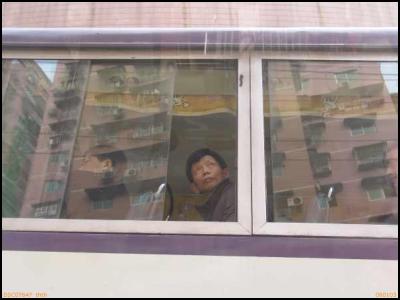
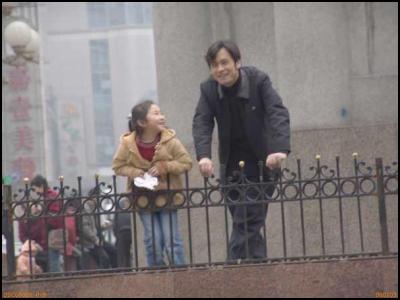
I wonder if anyone ever has been inside those apartments “where the workers live”. I have, many times, and the workers have a choice between one, two and three bedroom apartments. Those apartments on the picture they can rent for about NZ$10 a month, which is about one days net earnings. How much do you have to pay in rent in New Zealand, and how many days do you have to work to earn that money? The workers can buy the apartment for about NZ$20,000, which gives them firm legal title and ownership, and that is about five years earnings net of tax. I just heard that it now takes 60 years for a New Zealand couple to earn up to their own home.
When you get inside you will find air-condition, heat pump, fridge and freezer, an automatic washer, wooden floor, flat screen television, appliances, showers, flush toilet, hot an cold running water, and modern furniture. All of higher class than the average New Zealand standard. There is a nice view from the window, a park and children’s playground outside, a family dinner at the restaurant cost about a dollar, and there is free access to gym, sauna, and indoor pool. The entire area has security.
About the three gorges dam. Well - nobody wanted it, including me, but most people needed it. It is controversial, no doubt, both inside and outside China. This is one of the most enchanting and beautiful areas of China, the area where most folk tales of dragons, heroes, princesses, and adventure originated. It is not being destroyed by the new dam, but it is being changed.
The reason the dam was needed were many, and the net result are major financial, social, environment and people benefits.
It is true that most of Chinas electricity today comes from burning coal, and that is one reason why the dam was built. Electrical hydrogenation does not generate CO2, and it is a renewable energy. In upstream Chongqing, the largest city/municipality in the world with 40 million people living and working there, heating and air-condition is now done with heat pumps, the most efficient way we know, and if you have a coal or gas heater, it can literally be confiscated. Fossil fuels are being phased out where possible. You will struggle to find an ordinary light bulb in the shop or in town, all public transport either runs on electricity or CNG, and if you find a traffic jam, it is caused by busses, not cars. The City is cleaner than Queen St. in Auckland.
The Three Gorges Dam will now enable ocean going ships all the way up to Chongqing, three days train ride from the sea, and the energy savings from not reloading containers on railways or using air freight is enormous. Chongqing is building a new harbour and container terminal. The dam will feed the area’s development and work opportunities with easy transport and renewable clean energy.
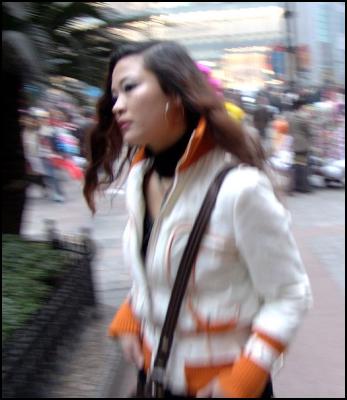
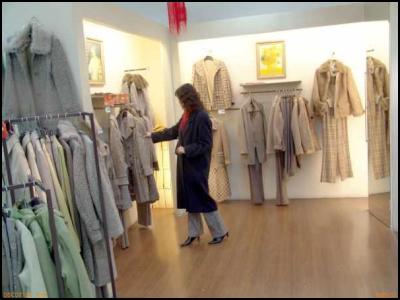
Chongqing is a centre for garments production in China, and tax breaks and handouts from local government are enormous, and the costs are half that of eastern China. Icebreaker may be interested. The material comes from Shanghai and the clothes from Chongqing.
To get the proportions right, the forced eviction of Aucklanders from John Banks proposed motorway project would have been proportionally greater that the movement of people in the Three Gorges Dam project. There are a couple of differences though. In Auckland, people would have been evicted from their modern and comfortable homes at a price the council would have decided the home was worth.
In China, thought the villages and towns may look picturesque on photos, they are more often that not what New Zealanders would label slums, with open sewers, old and derelict outdated housing, and unclean environments polluting the river. The new town will have every possible environmental facility. Residents moved out get paid for their homes based on what their new home would cost them, and they get priority access to modern apartment they will own and have the legal title to.
The photos from the cowlesgallery.com “Before forced evacuation” and “Demolition underway”, are very significant. Chinese construction and demolition practices are different from the New Zealand practice, and the second photo actually show the place under construction, not demolition, and the first photo what it looks like when finished. In the photo “Demolition underway” they are actually building, not demolishing, and you can see the banners celebrating progress and what they are building, as well as concrete mixers and storage of new building material. You don’t use concrete mixers and deliver new bricks to a building demolition site. [Editor's Note: the error in the captions on those photos was the responsibility of the Scoop Editor not of Barbara Sumner Burstyn.]
Free speech is something often mention in connection with China. The fact is that free speech is greater in China than in New Zealand. There is no doubt that China actively dislikes and discourages low class dirt seeking degrading and derogative journalism, but travelling in China, I have never had any problems accessing overseas controversial information, or visiting controversial locations inside China. It is true that some well known Internet launch pads of anti China propaganda and gross and child pornography have been blocked though.
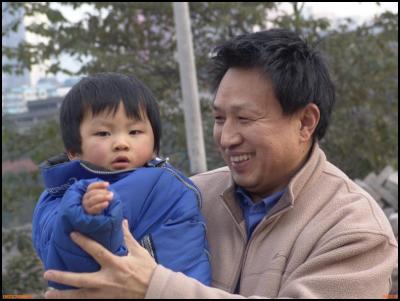
The debate in China is in fact vivid, often outspoken, pointed and harsh, but it primarily takes place on the one to five million people level, not nationally on the 1.3 billion people level, and it is usually missed by foreign journalists who do not understand the language, or the culture. China has 56 nationalities, some 700 languages and 23 writing systems.
There are few journalists in New Zealand who has not at some stage in their career experienced threatening and intimidating letters from lawyers after publishing articles that stepped on the toes of the wrong people or even some white collar criminals, or had their work stopped by the chief editor as “unsuitable”. It is true that China, and more so its residents, detest journalist trying to profit on others misfortune by colouring news and misreporting, not to say right out lying on disasters to create sensation that only intends making quick money.
Photographers as Edward Burtynsky are concerned with the photographic and artistic values, not with political statements, and if China was so restrictive, how come that he and other fellow photographers, including New Zealand photographers, can travel freely to practice their profession and publish their work? His photographs depicts how China is closing down old unsafe and polluting factories and opening new clean factories as the one Icebreaker has invested in. Edward Burtynsky as well as my photography of China is not a result of “rare access” only that few have bothered to do it before.
I don’t know if Barbara is right about her statement “more journalists in jail than any other country”, but no other country encompasses nearly one quarter of the worlds population either, and few other countries are targeted so intensely by derogative propaganda as China.
Barbara is partly right when she says there is no new and old China, but the reality is that there is anything and everything in-between. Many people in China are still living on medieval level, farmers and their families sleeping with the animals, never take a shower or wash themselves, the family toilet is an open ditch in the back yard, hygiene as New Zealanders know it does not exist. It not so that the farmer and his family can not afford anything better, it is just that to him, this is the right way of living as his family has done so for maybe 2,000 years. Townies that take showers every morning lives “un-naturally” and in a false environment, in the farmers thinking.
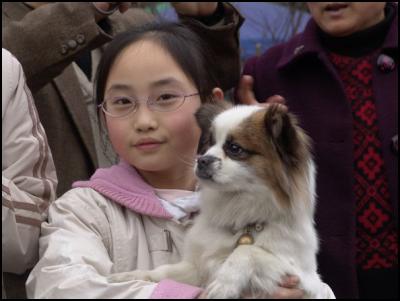
There is a new China too. I met one of them recently in Chongqing. She is 23 years old, she came as a teenager from a very poor farming village some years ago, moved to the big smoke as an adventure, got sucked into the low end sub culture on a NZ$800 annual salary, free dormitory, fee basic food, and 16 hours work in a restaurant seven days a week.
Some five years later she has two jobs, as a guide and an interpreter, dresses neatly and fashionably, speaks three languages, is studying Japanese at a local university, owns a new modern apartment with every appliance and convenience where she lives with her younger sister whose education she is financing and she has a Japanese boyfriend. The apartment is small, but of the highest standard, measured after New Zealand level. The future is bright. She is the new China.
The China central government aims to reform China into what they call a modern, peaceful and harmonious place, but they are wary of mistakes as Iran and Iraq, not to mention the Third Reich or the Soviet Union. They think it will take some 80 years to achieve and it has to be driven by the young people, not the government. What they aim to provide is the platform for progress as housing, transport, and infrastructure. 80 years is three to four generations, and history can tell us they are probably right.
In the end I would just wish that both Jeremy and
Barbara would draw on the knowledge and experience of New
Zealand people already living in China instead of adopting
the traditional Kiwi mindset of “know everything - DIY”.
There are not many Kiwis in China, but some are very
experienced and very willing to help. KEA (
http://www.keanewzealand.com/index.html) is a good
source for contacts.
Photos
attached
Rick Harris can be contacted at
rick.harris @ hotmail.com Feedback and comments are always
welcome.
This article is owned by Rick Harriss. Rick
Harriss is a retired freelance journalist and
photojournalist living in Hong Kong. Rick was born in New
Zealand but grew up in Hong Kong and has traveled and lived
extensively in China and other parts of the world. This
article can freely be used, copied and distributed. You may
not alter or edit the article without prior clearance from
Rick Harriss. To make a copyright clearance inquiry, please
email Rick at rick.harriss@hotmail.com


 Keith Rankin: Using Cuba 1962 To Explain Trump's Brinkmanship
Keith Rankin: Using Cuba 1962 To Explain Trump's Brinkmanship Binoy Kampmark: The Killing Of Israeli Embassy Staffers - Netanyahu’s Antisemitism Canard
Binoy Kampmark: The Killing Of Israeli Embassy Staffers - Netanyahu’s Antisemitism Canard Keith Rankin: Zero-Sum Fiscal Narratives
Keith Rankin: Zero-Sum Fiscal Narratives Eugene Doyle: Chinese Jet Shoots Down France’s Best Fighter; NZ And Australia Should Pay Attention
Eugene Doyle: Chinese Jet Shoots Down France’s Best Fighter; NZ And Australia Should Pay Attention Ian Powell: “I Can Confirm They Are Hypotheticals Drawn Largely From Anecdotes And Issues The Minister Has Heard About.”
Ian Powell: “I Can Confirm They Are Hypotheticals Drawn Largely From Anecdotes And Issues The Minister Has Heard About.” Gordon Campbell: On NZ’s Silence Over Gaza, And Creeping Health Privatisation
Gordon Campbell: On NZ’s Silence Over Gaza, And Creeping Health Privatisation